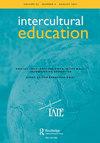Educators’ attitudes towards refugee pupils: intergroup contact and virtuous circles
IF 0.8
Q3 EDUCATION & EDUCATIONAL RESEARCH
引用次数: 0
Abstract
Educators’ attitudes are a key factor in the practices they enact, their expectations for pupils, and outcomes for pupils. For newly arrived refugee and asylum-seeking children, education is known to play a crucial role in the settling-in process. This study uses survey data (n = 295) and case studies of 17 educators at two schools in England to examine the attitudes of educators towards refugee pupils. It finds that educators had relatively positive attitudes towards refugee pupils and that previous relevant experience was associated with positivity. Educators at case study schools saw refugee pupils as assets, emphasised refugee pupils’ resilience, and blamed difficulties encountered on the education system rather than pupils. In the survey, previous experience teaching refugee pupils was associated with more positive attitudes towards them. While the direction of causality in this relationship was unclear, the case studies provided examples of educators attributing their positive attitudes to their interactions with refugee pupils and experiences working in multicultural schools. The study contributes to literature showing that intergroup contact improves attitudes towards outgroups and proposes that the relationship between school and individual educators’ attitudes could be seen as a ‘virtuous circle’ of positivity.教育工作者对待难民学生的态度:族群间接触与良性循环
教育工作者的态度是他们实施的实践、对学生的期望以及对学生的影响的关键因素。众所周知,对于新抵达的难民和寻求庇护的儿童来说,教育在定居过程中起着至关重要的作用。本研究使用调查数据(n = 295)和对英国两所学校的17名教育工作者的案例研究来检验教育工作者对难民学生的态度。研究发现,教育工作者对难民学生的态度相对积极,以前的相关经验与积极性有关。案例研究学校的教育工作者将难民学生视为资产,强调难民学生的适应力,并将遇到的困难归咎于教育系统,而不是学生。在调查中,以前教难民学生的经验与对他们更积极的态度有关。虽然这种关系的因果关系方向尚不清楚,但案例研究提供了教育工作者将其积极态度归因于他们与难民学生的互动和在多元文化学校工作的经历的例子。该研究有助于文献表明,群体间的接触改善了对外部群体的态度,并提出学校和个人教育者的态度之间的关系可以被视为一个积极的“良性循环”。
本文章由计算机程序翻译,如有差异,请以英文原文为准。
求助全文
约1分钟内获得全文
求助全文
来源期刊

Intercultural Education
EDUCATION & EDUCATIONAL RESEARCH-
CiteScore
2.30
自引率
8.30%
发文量
36
期刊介绍:
Intercultural Education is a global forum for the analysis of issues dealing with education in plural societies. It provides educational professionals with the knowledge and information that can assist them in contributing to the critical analysis and the implementation of intercultural education. Topics covered include: terminological issues, education and multicultural society today, intercultural communication, human rights and anti-racist education, pluralism and diversity in a democratic frame work, pluralism in post-communist and in post-colonial countries, migration and indigenous minority issues, refugee issues, language policy issues, curriculum and classroom organisation, and school development.
 求助内容:
求助内容: 应助结果提醒方式:
应助结果提醒方式:


